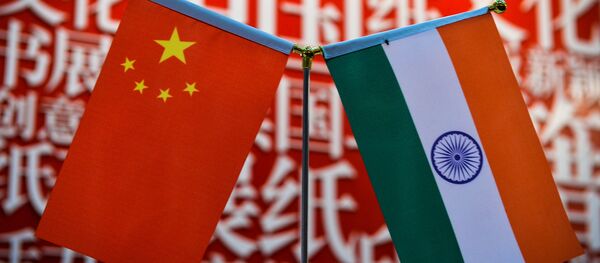New Delhi (Sputnik): Thousands of staffers at Facebook's Menlo Park headquarters in California, and many other at regional centres in Singapore, Dublin and India are keeping close watch on posts related to hate speech, fake news, misinformation and violent content on Facebook, WhatsApp and Instagram in a wide-reaching election monitoring exercise geared towards weeding out electoral malpractice in the platforms.
The first phase of the Indian election will commence on 11 April.
READ MORE: Facebook Removes 687 Pages & Accounts Linked to Indian Party Ahead of Election
"As Indians prepare to vote in the national elections for the 17th Lok Sabha (Indian Lower House of Parliament), Facebook and our family of apps continue our efforts to help make sure that the elections are fair and free from interference, both foreign and domestic," Facebook India's Managing Director and Vice President Ajit Mohan said in a blog post.
"This work is done across dozens of teams, both in India and around the globe, and began more than 18 months ago with detailed planning and risk assessment across our platforms. The findings allowed us to concentrate our work on key areas, including blocking and removing fake accounts; fighting the spread of misinformation; stopping abuse by domestic actors; spotting attempts at foreign meddling, and taking action against inauthentic coordinated campaigns," he added.
Facebook's Artificial Intelligence (AI) system has also been improved, with support added for 24 new languages, including 16 languages spoken in India. The company claimed that its AI technology can find offending and fake content and take it down within a short span of time.
READ MORE: Rafale Jet Deal Features in Election Manifesto of India's Main Opposition Party
Facebook has partnered with seven third-party fact-checkers in India to review content across regions and languages that include English, Hindi, Bengali, Marathi, Telugu, Tamil, Malayalam and Gujarati.
Furthermore, Facebook has also collaborated with the Indian Institute of Mass Communication and the Asian College of Journalism to identify fake news and misinformation during the crucial national elections.
Facebook has signed a voluntary code of ethics with the Election Commission of India to do its part to make way for free and fair elections. Last week Facebook removed nearly one million 'abusive' accounts, in adherence with its policy.
"There is growing and serious pressure from worldwide governments on Facebook and other such social media to curb fake news, malicious content etc that can create social discord, civic chaos, and especially impact the election results. Secondly, now with upcoming elections in India, the government has been applying pressure on Facebook to weed out fake news, and take steps to prevent mischievous behaviour on social media. Facebook so far seemed reluctant to meet the demands of the Indian government. However, now it seems to be taking matters much more seriously," Robinder Sachdev, Director of New Delhi based think tank Imagindia told Sputnik.
"Facebook is realising that these pressures from governments, especially India, even though unwelcome, will be very useful for its long-term business outlook. By being forced to significantly advance and improve its data-mining and artificial intelligence capabilities, Facebook's technology platform will become even more powerful, and help it get more business revenues from newer services and applications. Thus, by investing in the elections and its monitoring systems, Facebook will, in fact, end up benefiting in technological growth and next-gen business," he added.
READ MORE: Misinformation and Corruption Paramount Issues for Indian Voters — Survey
"I will be here in India for the first and second phase of elections," Katie Harbath told Sputnik.
As Facebook's public policy director of global elections, Katie will be coordinating the monitoring process during the first and second phase of elections in India.
Close to 900 million people will exercise their right to vote in the grand Indian general elections, which are spread across seven phases, with the first phase on April 11; the counting of votes is scheduled for 23 May. India's 2019 elections will decide members for the 17th Parliament, which is elected for a period of five years. The elected members of the majority party elect the Prime Minister, who heads the government.
Prime Minister Narendra Modi is seeking a second term; he has been in power since 2014.





